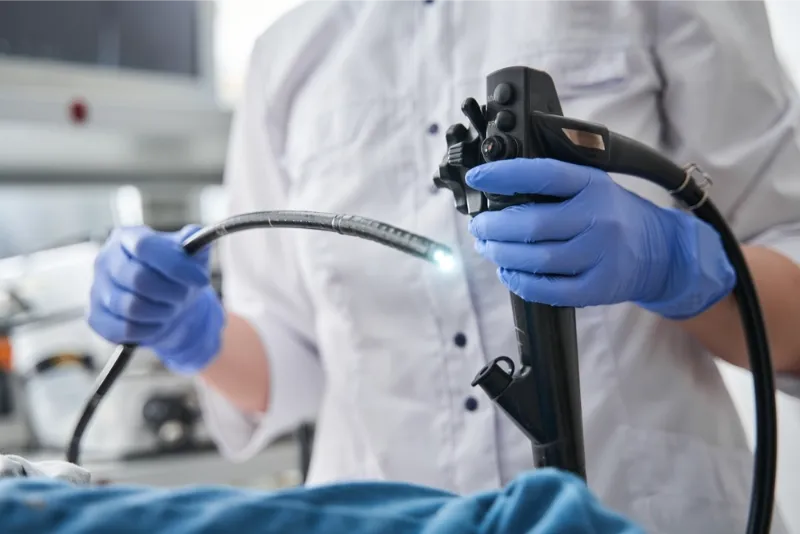In the field of gastroenterology, endoscopy has undergone significant advancements in recent years, revolutionizing the way we diagnose and treat gastrointestinal (GI) disorders.
Capsule Endoscopy:
Capsule endoscopy involves swallowing a small camera pill that captures high-resolution images as it travels through the digestive tract. It’s particularly useful for visualizing the small intestine, aiding in the diagnosis of conditions like Crohn’s disease, celiac disease, and GI bleeding.
Advanced Imaging:
Endoscopy now features high-definition and 4K resolution cameras, providing detailed views of the GI tract. Techniques like Narrow-band Imaging (NBI) enhance visualization, aiding in the detection of abnormalities and improving diagnostic accuracy.
There are several applications of Endoscopy in Gastroenterology.
Diagnosis:
Endoscopy is pivotal in diagnosing GI conditions, from detecting precancerous polyps during colonoscopy to evaluating the esophagus in cases of acid reflux. Early diagnosis through endoscopy enables timely intervention and better patient outcomes.
Treatment:
Endoscopy is not only diagnostic but also therapeutic. Gastroenterologists can remove polyps, control bleeding, and place stents to relieve obstructions. Specialized procedures like ERCP help diagnose and treat bile and pancreatic duct disorders.
Monitoring and Surveillance:
Chronic GI conditions require ongoing monitoring. Surveillance colonoscopies and upper endoscopies are essential for managing diseases like inflammatory bowel disease (IBD) and Barrett’s esophagus effectively.
Importance of Regular Screenings and Patient Comfort
Regular screenings are crucial for early GI disease detection and prevention. Endoscopy advancements have made screenings more accessible and less intimidating.
Endoscopy’s evolving role in gastroenterology brings forth cutting-edge technology and techniques, benefiting both patients and healthcare providers. New innovations offer less invasive and more accurate options for diagnosis and treatment while prioritizing patient comfort and reducing stress associated with these procedures.
Regular screenings and patient comfort ensures early detection and effective management of GI disorders. As gastroenterologists embrace these advancements, the future of GI care promises improved patient outcomes and a higher quality of life for those affected by GI conditions. Don’t hesitate to consult a gastroenterologist to discuss the most suitable endoscopic options for your digestive health needs. Your well-being is worth the investment in these modern technologies.

